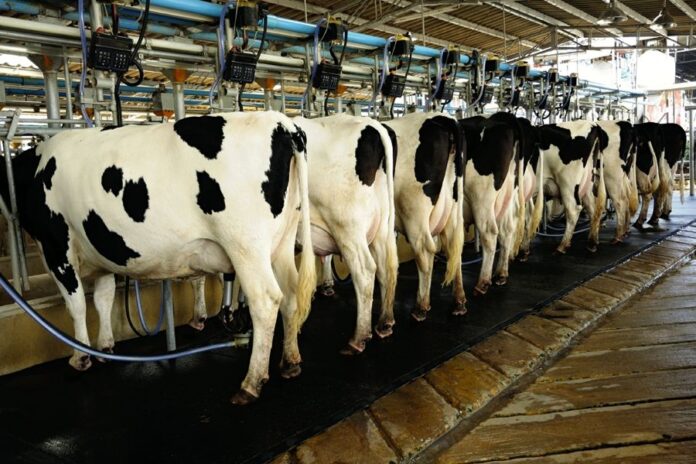The Pakistan Dairy Association (PDA) has voiced strong opposition to the imposition of 18% General Sales Tax (GST) on milk and dairy products, warning that the measure could trigger the collapse of the formal dairy sector, reduce access to safe nutrition for millions, and have devastating consequences for small-scale farmers.
In a detailed briefing to journalists, key PDA representatives—including Chairman Usman Zaheer Ahmad, CEO Dr Shehzad Amin, Noor Aftab of Tetra Pak, FrieslandCampina’s Imran Husain and Dr Muhammad Nasir, and Nestlé Pakistan’s Aatekah Mir-Khan—said that the decision, made under the Finance Act 2024 to shift milk from zero-rated to standard-rated taxation, has caused widespread disruption in the industry. They described the 18% tax on milk as an international anomaly, pointing out that no country, including developed nations, levies such a high tax on an essential nutritional item like milk.
According to the association, the tax burden has had its most severe impact on dairy farmers. Due to the increased costs in the formal sector, milk procurement from farmers has declined by 20%, forcing around 35% of those previously engaged with formal processors to return to the unregulated loose milk trade. Approximately 20% of milk collection centres have shut down, disproportionately affecting smallholders who have lost incentives worth Rs10–15 per litre earlier provided by the formal sector. While the price of loose milk has increased by Rs30–40 per litre, farmers have not benefited, further discouraging investment in productivity or modern farming practices.
The impact on consumers is equally alarming. Retail prices of packaged milk have jumped from Rs280 to Rs350 per litre, placing it out of reach for many low- and middle-income families. With two-thirds of the population earning less than Rs50,000 per month, according to a Nielsen study, a large section of consumers has been forced to switch to cheaper, but unsafe, loose milk. The PDA warned that milk—once the most nutritious and affordable item in the household food basket—has now become one of the most expensive, aggravating food insecurity and malnutrition.
The formal dairy sector, which had been contributing to rural development and safe nutrition, is now under immense financial stress. Industry officials reported a more than 20% drop in sales volumes, closure of 500 milk collection centres, suspension of Rs1.3 billion in annual farm-level investments, and a 20% reduction in workforce. Investments in branding and new product development have ceased, processing plants are operating at below 50% capacity, and sector-wide profitability has vanished. With the formal industry under pressure, Pakistan’s estimated $30 billion dairy export potential is also in jeopardy.
The PDA further highlighted how the tax policy has unintentionally bolstered the informal sector. Loose milk vendors—gawalas—are now earning significant profits, with estimated annual gains of Rs1,319 billion as consumers shift away from taxed, packaged milk. This expansion of the undocumented economy not only undermines regulation and quality assurance but also exposes consumers to unsafe and unhygienic milk.
In response, the PDA has submitted a proposal to the government urging it to reduce GST on all milk products—from 18% to 5%—starting July 2025. The association argues that such a move would help the sector recover, increase volumes by over 20%, and raise annual tax revenues by more than 22%, reaching revenue neutrality within three years. They claim the measure would also curb reliance on the informal economy, revive investment in farms and exports, and improve consumer access to safe, affordable milk.
As a goodwill gesture, the PDA has offered to reduce the price of milk by Rs50 per litre if the government accepts the proposal to lower the sales tax. Industry representatives called the offer a win-win for consumers, farmers, industry, and the state, and urged policymakers to reconsider the current tax regime in the forthcoming federal budget.




